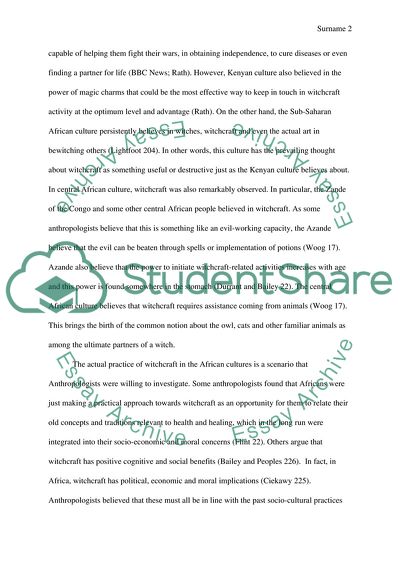Cite this document
(Witchcraft in Africa Coursework Example | Topics and Well Written Essays - 2250 words, n.d.)
Witchcraft in Africa Coursework Example | Topics and Well Written Essays - 2250 words. https://studentshare.org/anthropology/1812818-witchcraft-in-africa
Witchcraft in Africa Coursework Example | Topics and Well Written Essays - 2250 words. https://studentshare.org/anthropology/1812818-witchcraft-in-africa
(Witchcraft in Africa Coursework Example | Topics and Well Written Essays - 2250 Words)
Witchcraft in Africa Coursework Example | Topics and Well Written Essays - 2250 Words. https://studentshare.org/anthropology/1812818-witchcraft-in-africa.
Witchcraft in Africa Coursework Example | Topics and Well Written Essays - 2250 Words. https://studentshare.org/anthropology/1812818-witchcraft-in-africa.
“Witchcraft in Africa Coursework Example | Topics and Well Written Essays - 2250 Words”. https://studentshare.org/anthropology/1812818-witchcraft-in-africa.


